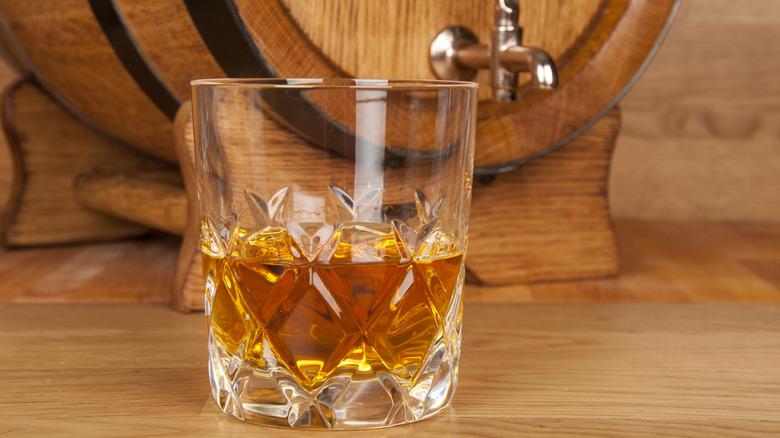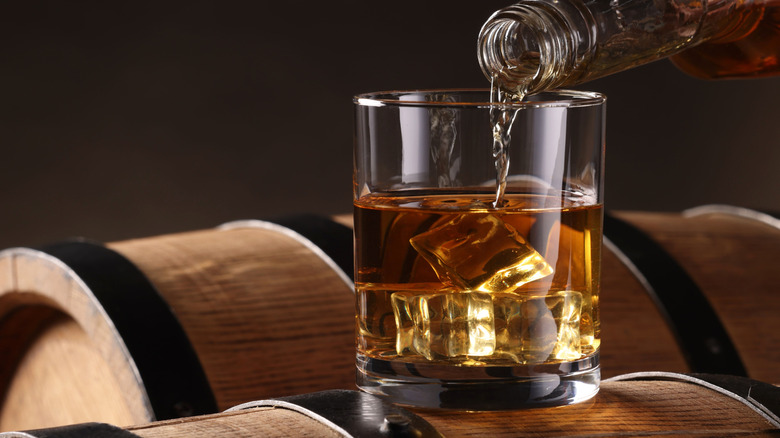Why Costco Shoppers Are Wary Of Its $120 Whiskey Aging Kits
What says luxury like properly aged whiskey? For eagle-eyed Costco fans, a newly-appeared whiskey aging kit retailing at $126.15 is the ultimate temptation. However, it has quickly sparked hot debates online over whether or not it's a gimmick. The 2-liter reusable micro barrel promises "accelerated aging" and is made of charred oak (which some suggest would be a nice display piece regardless). It even comes with two 750ml bottles of unaged whiskey. Small barrels typically require three to six months to effectively age products, so while you've missed the boat to age some in time for Christmas, it's a timely gift. Still at over $120, it's easy to see why it has tongues wagging.
In one Reddit thread, shoppers are recommending a light-hearted approach, with one saying, "I've used this kit as have several friends. It makes good whiskey and is a fun experiment to taste along the way then make aged cocktails after a few rounds." Learning how to age whiskey at home is meant to be fun, because home-aging kits aren't actually new. Others praised Woodinville Whiskey, the brand behind the kit, suggesting that while micro barrel aging is often a gimmick, this company provides a diamond-in-the-rough style experience. The product's primary criticism comes from more experienced whiskey agers, cautioning about over-oaking and questioning why you'd not simply allocate the same money to better quality professionally aged bottles. One such critic even cited Costco staff members warning against the kits, advising that other whiskeys were retailing for better value.
Should you rush to scan the shelves near you? Potentially. Detach yourself from the outcome and you're in for a fun ride. Besides, Costco's $126.15 is a fair discount from the usual retail price of $149.99.
How do whiskey aging kits actually work?
Whiskey aging kits are a growing trend, providing micro barrels for soon-to-be connoisseurs to fine-tune their own whiskey at home. Reducing the barrel size decreases the length of the aging process. Rather than years, you're talking up to six months maximum, and sometimes even weeks. While it sits, a chemical process (adsorption) begins, drawing harsher-tasting molecules to the side of the cask and slowly imparting qualities from the wood into the whiskey. It's a clever method of separation, and it's been perfected over centuries. Now customers can simply access it on a smaller, ultra-portable scale.
But why do we even age liquor in the first place? For whiskey specifically, alcohol enters the barrels completely transparent and pretty much flavorless — envision a blander-tasting vodka. It's the barrel that gives whiskey its character and color, which is why distillers make such a big deal about what type of barrel is used. Aged whiskey isn't always the best option, but in general, it's associated with matured and more complex taste profiles.
Should you age your own? It depends, especially for those in colder climates where the process takes longer. It's a sensitive approach; the wood, temperature, previous content, and oxygen levels all play a role — and that's before you've even picked a whiskey. In fact, aging bourbon for too long can have a negative effect, creating a sour and unpleasant woody taste. Ultimately, it boils down to whether or not you'll find fun in the process or think that your giftee will.

